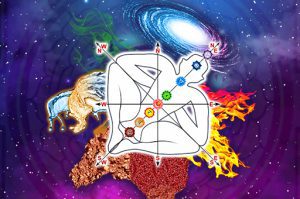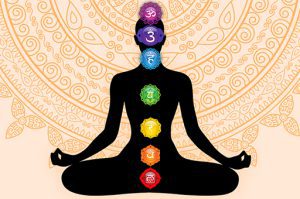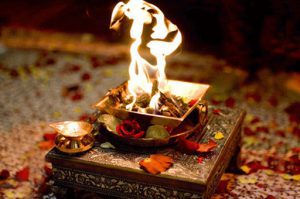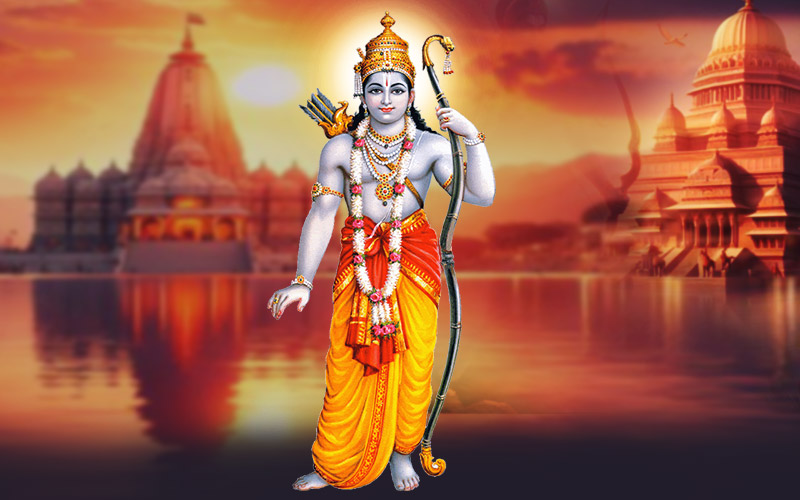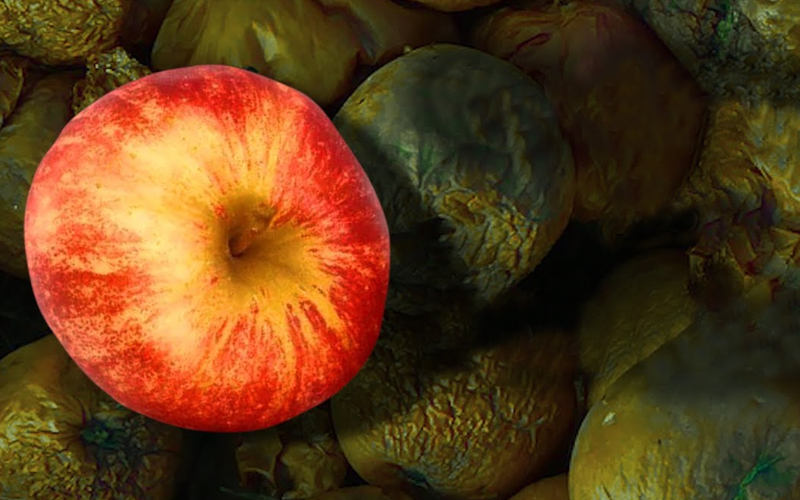
Karma means thoughts, words, and actions (or deeds) and the intention behind them. The act of Karma means that you have willingly taken the action. Sow good you will reap good and vice versa which also conforms to the universally known principle of cause and effect. Karma is delivered on the basis of two-fold, one – the Phala (fruit or result of the actions) and two –Samskaras (Vrittis or impressions) that ARISE out of it that prompt more karma. Good deeds with good intentions earn good karmas and bad deeds with bad intentions earn bad karmas. Good deeds with bad intentions (doing something out of obligation but don’t feel like doing it) may earn good karmas (but no bad karmas either).
Types of Karma
Karma is of 3 types
1.Sanchita Karma is past accumulated karma. One lifetime is most often not enough to experience all the Sanchita Karma, and hence the soul reincarnates on the earth. But one can gain control and exhaust Sanchita karma by clearing the karmic debts, which basically means putting a stop to re-occurring patterns a lifetime over a lifetime.
2.Prarabdha Karma is that subset of the Sanchita Karma that is ripe and ready to be experienced in this lifetime. Prarabdha means something that has already started. It cannot be removed or controlled. It can only be experienced; there is no other way around it.
3.Agami Karma is the karma that is being created and accumulated in the present to be experienced in the future.
KARMA IS A VICIOUS CYCLE
Karma always comes with an attachment or expectation for the Karmaphala (fruit or the results of karma). This traps one into Lobh (greed), Moha (attachment), Kaam (Lust), Ahankar (arrogance) and Krodh (anger) as he/she takes on the role of doership of the action and results thereof. If the result is as per expectation, pleasure is reported or else pain. The result makes one define self or the other or the world as per his/her judgment and this creates Vrittis.
Few examples of Vrittis:
- My life is full of struggles and obstacles
- I am unlucky
- People take advantage of me
- I don’t get my due
- Life is so hard
- The world is full of selfish people
The trap of the Karmic Cycle
A time comes when the person starts feeling trapped in this endless cycle of pleasure and pain and continual lessons from life due to cause and effect. He/she finds dis-ease in the physical body and starts losing emotional and mental balance. He/she finds that controlling life is not working in one’s favour in different aspects of life whether it is family, relationships or career. This results in one looking beyond the stories of his/her life to see what can give everlasting peace.
Is Nishkam Karma the way out?
Introduction to Nishkam Karma
An action is done out of your “natural beingness (naturally flowing – the true nature)” leads to non-doingness or Nishkam karma. Take a few examples:
- A mother feeding her child
- A father teaching his bicycle riding to his son
- A teacher teaching his students
- A singer performing in a concert
- A pranic healer giving healing to his client
- An engineer engrossed in repairing his machine
- A car racer zooming past his opponent in a match
As Osho so beautifully said “ Dance so deeply that you forget completely that “you” are dancing and begin to feel that you are the dance”.
An action is done out of your true nature no longer remains an action. For example:
- An honest person returns the owed money
- A generous person performs charity
- A truthful person speaks his/her voice
- A soldier fighting for his beloved country kills the enemy
- A righteous judge gives the order of execution of the criminal
Life flows with the intention of connecting you with your true higher self. Thus it teaches you lessons of being a witness and any reaction that comes out of you becomes karma. Performing an action without any expectation of fruits or results is the central tenet of Karma Yoga (as per Bhagavat Geeta), and the perfect path to Self-Realization.
As the Supreme Godhead Vishnu’s avatar, Bhagwan Krishna said in Bhagavad Geeta, “All actions in their entirety, O Partha, culminate in wisdom”, Gita: Chapter IV – 33.
Nishkam Karma is an eternal Dharma – the only truth/the only right thing to do at all times. By following this eternal Dharma of doing Nishkam Karma, one is able to live as per his/her true nature and blossom it to full potential. It is the only way to achieve Chitta Shuddhi, come out of the karmic cycle and end the creation of samskaras and not get rebirth (meaning become immortal).
As the Supreme Godhead Vishnu’s avatar, Bhagwan Krishna said in Bhagavad Geeta, “Thy business is with the action only, never with its fruits; so let not the fruits of action be thy motive, nor be thou to inaction attached. “ Gita: Chapter II-47.
Does good Karma cancel/reduce bad karma?
Accumulation of good karmas does not cancel the previous or recent or future bad karmas!
Both good and bad karmas have their consequences. Good deeds will give good results and bad deeds will give bad results.
Take an example: Suppose a person cheated and gained extra money from someone but he did it with an intention to do a pious deed somewhere else. Ultimately, the person will bear the results of the bad karma for cheating. But, the good /the pious activity that he did will also yield him the good back in some form sooner or later. So you cannot manipulate karma by doing good karma to subtract the bad karmas.
Let’s recall what Bhagwan Krishna said in Bhagwad Geeta about Karma. He said, “gahanā karmaṇo gatiḥ”, which means in unfathomable ways the results of karmas are reaped.
Let’s take the classic example from the classic Mahabharata:
Dhritrashtra lost all 100 sons! In deep sorrow, he probed Bhagwan, “why did he lose all 100 sons (not even one son was left back to support him in his old age)”?
Bhagwan replied, “Dhritarashtra, several thousand years ago you had burnt a tree which had small parrot babies in it. Due to your careless and heartless action, the lives of babies ended. Imagine the grief and pain you caused to the parents of the parrot babies? Dhritarashtra, this life was your payback time to lose all your 100 sons. “But then why after so many years?” he asked. Unfathomably so, “You had to first accumulate enough punya (merits) to give birth to 100 sons.
Let’s take another classic example from the classic Mahabharata:
Karna was regarded as the greatest donor. During the Kurukshetra war, he refused to offer water to the dying Abhimanyu who was lying on the ground on the battlefield although there was a pit of water nearby. Eventually, the same pit became responsible for his death.
Know this:
The Law of Karma has a record of everything and its timing is perfect and ways are unfathomable.
So Karma can be really complicated and it is not just pure maths. The result of all good or bad karmas comes back at the most right time in the circumstances that it will fit.
The conclusion is: Good Karma does not cancel out bad karma. But the accumulation of good karmas does lower the effects of bad karma. Here’s another example to understand this well:
In an organization, let’s say a junior staff member made a grave mistake with a customer order resulting in a loss for the company. It could result in immediate termination. But a Senior Manager (who has long-standing merit and worth proved to the company) did the same thing; he could be left with a warning to not repeat it again. Likewise, a spoon of salt mixed in a glass of water will make it salty, but when mixed in a lake will not make any difference.



